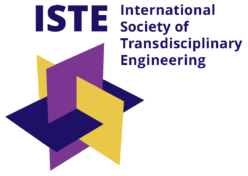Following the conference, members of the ISTE Community commonly develop plans for a special issue in a range of journals. Below are the currently planned Special Issues for specific journals. Normally these are done by a member of the TE community inviting the best papers in the conference to submit, where the topics align.
Typically, if you are invited to submit your paper to a special issue, you will need to substantially change the content of the paper to enable it to be sufficiently different from the one published via the conference proceedings, Advances in Transdisciplinary Engineering. This can mean that around 60% of the content of the paper should be different.
Deadlines for submission to Special Issues normally follow standard, if shortened, journal submission and review processes.
Currently proposed Special Issues
Journal of Integrated Design and Process Science – led by Dr Mey Goh, Reader in Transdisciplinary Digital Manufacturing. For more information about this special issue, download the Call for Papers here.
Frontiers in Sustainability: modelling and optimisation for decision support – led by Dr Adam Cooper, Associate Professor in Engineering Policy and Chair of TE2024. More information on this call will be online at the Frontiers in website soon.
International Journal of Agile Systems and Management – led by Prof Federico Trigos, Professor of Business Analytics at the EGADE Business School, Tecnológico de Monterrey and Programme Chair of TE2024.
Journal of Industrial Information and Integration – led by Dr Josip Stjepandic focused on the “transition for transdisciplinary, human-centric industrial applications: Design theories and applications”. See the link for more details.
